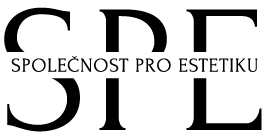Adorno and the Media, International Conference
University of Arts and Design, Karlsruhe (HfG)
In collaboration with the Centre for Arts and Media (ZKM) and the Institute for the Humanities, Simon Fraser University, Vancouver
CALL FOR PAPERS
In media theoretical terms, Theodor W. Adorno is one of the most ambivalent figures in the 20th century. In famous interviews and lectures, broadcasted to a wider public, Adorno discussed the fate of the public sphere and the autonomous individual under conditions of industrialized media production and what he and Horkheimer called the ‘Culture Industry’. Since the 1940s, the ‘Culture industry’ was the key term to characterize the ways in which the logics of the market inscribed itself into the structure of mediatized cultural consumption, indeed, into the very production and formation of subjectivity itself. Around this this term crystalized one of the most unsparing interpretations of modern media so far. At the same time, Adorno, who consistently emphasized the concept of mediation, was also appropriately one of the most mediatized intellectuals of his time. However relentlessly “negative” his analysis, Adorno made critical use of the world of media, of radio and television too. With contemporaries like Walter Benjamin and Bertolt Brecht, Adorno also belonged to a wider tradition of modernist writers and theorists who grew up with highly politicized and often optimistic prognoses of modern media (radio, television and especially film), which he knew to utilize and theorize for emancipatory project of Critical Theory or what he called in a radio interview “Education for Autonomy,” by which he meant a pedagogy devoted to both “contradiction and resistance.”. Some of the most influential writing on public media that were to follow in the following decades (from Hans Magnus Enzensberger to Alexander Kluge) were deeply inspired by Adorno’s double approach. In our contemporary debates, the at times apocalyptic tone of Adorno’s critical theory has again become influential. Today with the proliferation of “fake news,” big data, social media and digital populism, Adorno’s critical theory might again serve as a critical reference for a philosophically-informed sociologically-grounded critique of media.
On the occasion of the 50th anniversary of Adorno’s death, the conference will focus on these three issues: on Adorno’s own ambivalence concerning the dangers and potentials of modern media, on the aftermath of his theory in media theoretical approaches of the following decades and on the relevance of Adorno’s critical theory in the contemporary critique of digital culture.
Abstracts (max. 400 words) and a short CV can be sent to medienadorno@gmail.com before the 31st of May.
Confirmed speakers:
Josef Früchtl (Universiteit van Amsterdam)
Christian Fuchs (University of Westminster)
Samir Gandesha (Simon Fraser University Vancouver)
Angela Keppler (Universität Mannheim)
Christiane Voss (Bauhaus Universität Weimar)
Judith-Frederike Popp, PhD
Research Associate for Philosophy, Aesthetics and Theory of Science
University of Applied Sciences Würzburg-Schweinfurt
Design Department
Room: I.1.40
Sanderheinrichsleitenweg 20
97074 Würzbu
Mail: judith-frederike.popp@fhws.de
Homepage: https://fg.fhws.de/personen/dr-judith-frederike-popp/
